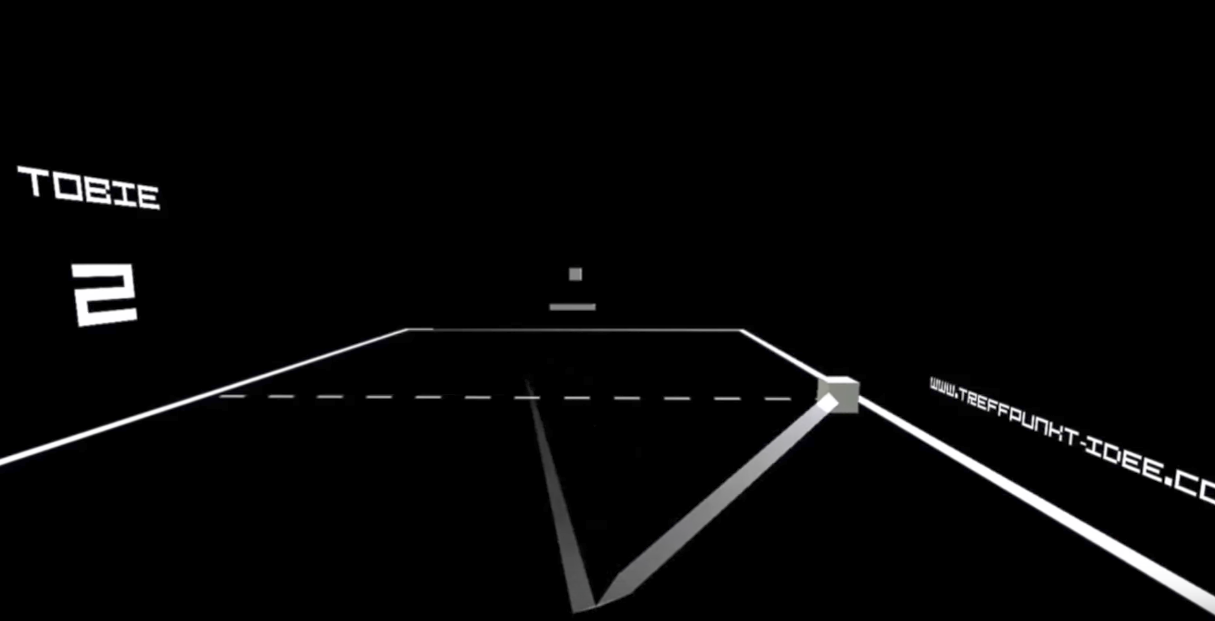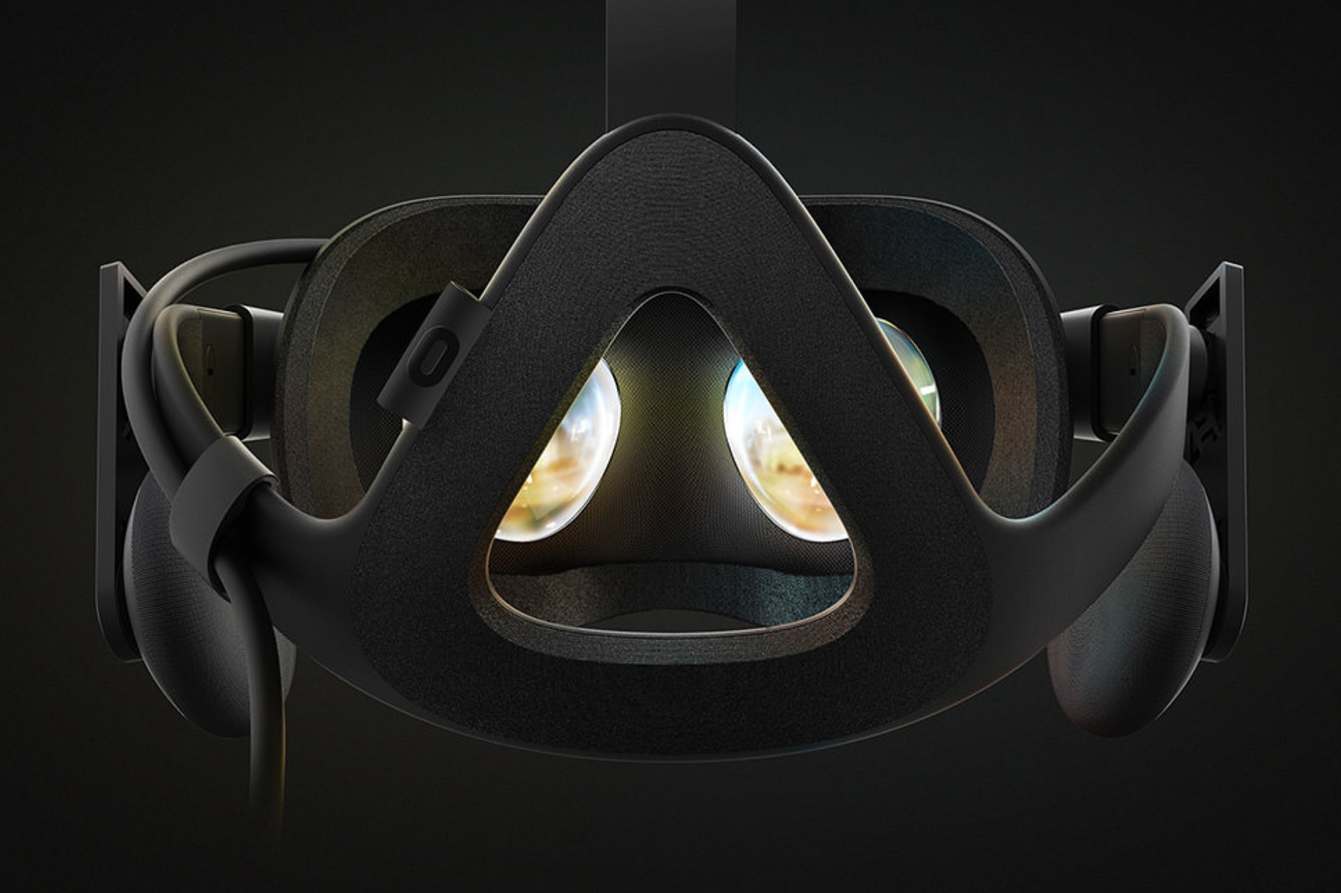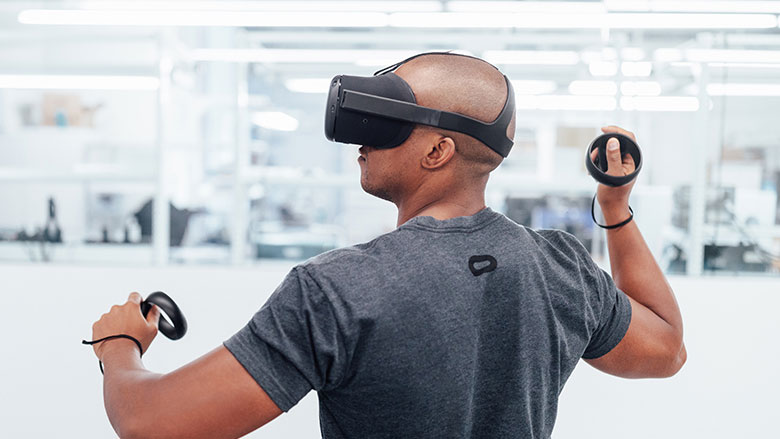The next big leap for VR isn't Pong in a warehouse
There are lots of VR companies, most of which are focused on the wrong parts of the ecosystem.

It's nearly the end of 2017 and we're still largely no better off than we were more than a year ago with virtual reality. Wired has a story about a company in Munich called HolodeckVR that's made the 'killer app' for VR: VR Pong. Wired is going as far as saying that what HolodeckVR has going for it will be VR's next big leap.
Two players stand in a large area facing each other, and in VR, see a wide empty black space with white borders and a floating dot. The dot bounces from player to player—just like in the original Pong—and you try to prevent the dot from passing by you. I don't know much about making games, but VR Pong doesn't seem like the next big leap.
It's safe to say that virtual reality needs significantly more development time than everyone thought. The Rift launched a little more than a year ago, and the Vive around the same time. But since that time, little has happened in terms of consumer adoption.
Electronics retailer Best Buy made a big splash about VR last May when it partnered with Oculus to install Rift demo stations in its store, only to shut them down less than a year later. Best Buy employees indicated that the demand for virtual reality just wasn't there.

If you have a VR headset already or still want to buy one, these are some of the better titles to try:
For Rift
The Unspoken
Lone Echo
Robo Recall
For Rift and Vive
Arizona Sunshine
Elite Dangerous
Battlezone
Star Trek: Bridge Crew
For VR to succeed, the industry needs to address three things:
Content
Premium gaming content is lacking. There are a few decent games for VR, and we saw more recently at Oculus Connect 4 just a few weeks ago, but they all still feel more like impressive tech demos than actual involved games. It's ironic that I'm saying the available games don't deliver 'involvement' seeing as they're virtual reality games, but none of them deliver the grand experience that a good non-VR title delivers. Despite being 'in' the game, you don't get sucked in.
The biggest gaming news, reviews and hardware deals
Keep up to date with the most important stories and the best deals, as picked by the PC Gamer team.
The problem here is the chicken and the egg thing. Developers want more hardware adoption, but hardware companies are asking for bigger games. And no one wants to make the first move.
Mobile and social
Oculus's chief scientist and creator of all things Doom, John Carmack, has repeatedly said that he is purely focused on VR for mobile. Carmack believes that wide adoption of VR will happen first on mobile devices, and it's easy to see why: people are spending most of their time on the phone, being socially connected with their friends. Facebook knows this and it's precisely the reason why the social media giant is pouring billions into creating a compelling social VR experience.
HolodeckVR's Pong VR is good for a giggle at best, and that's probably what it was designed to be. The arcade style experience isn't going to help either. The best VR experiences you can have today are found on either the Rift or Vive, and both of these headsets are going to fail—because tethered VR has no future.
Removing the cables
No current generation of VR headsets are really worth getting--unless you just want to have a VR experience, but it won't be a great experience. At best, your experience will be mediocre because you'll be tied to wires and always in fear of tripping over a cable. In addition to the cumbersome setup process, cables are the biggest reason on the hardware front why VR for the PC isn't taking off.

VR needs to be wireless to be at its best. Facebook is already working on the next iteration of the Rift headset which is completely wireless. I tried it at Oculus Connect. Wired headsets are dead.
So what about HolodeckVR's solution of using wireless optical and radio tracking sensors? Those won't help either. Who the heck wants to set up sensors around the room and wires snaking everywhere? VR headsets need to have markerless inside-out tracking, and Oculus knows this.
The mobile phone is already an untethered all-in-one computer capable of VR—although not as good as the PC. But developing for the "best" platform isn't just about specs, it needs to target where the most number of consumers will use a product.
Whatever the case may be, the VR experience we're all hoping for isn't going to arrive until after a large part of the population starts using VR on their phones. The PC will just have to take a back seat on this journey.


